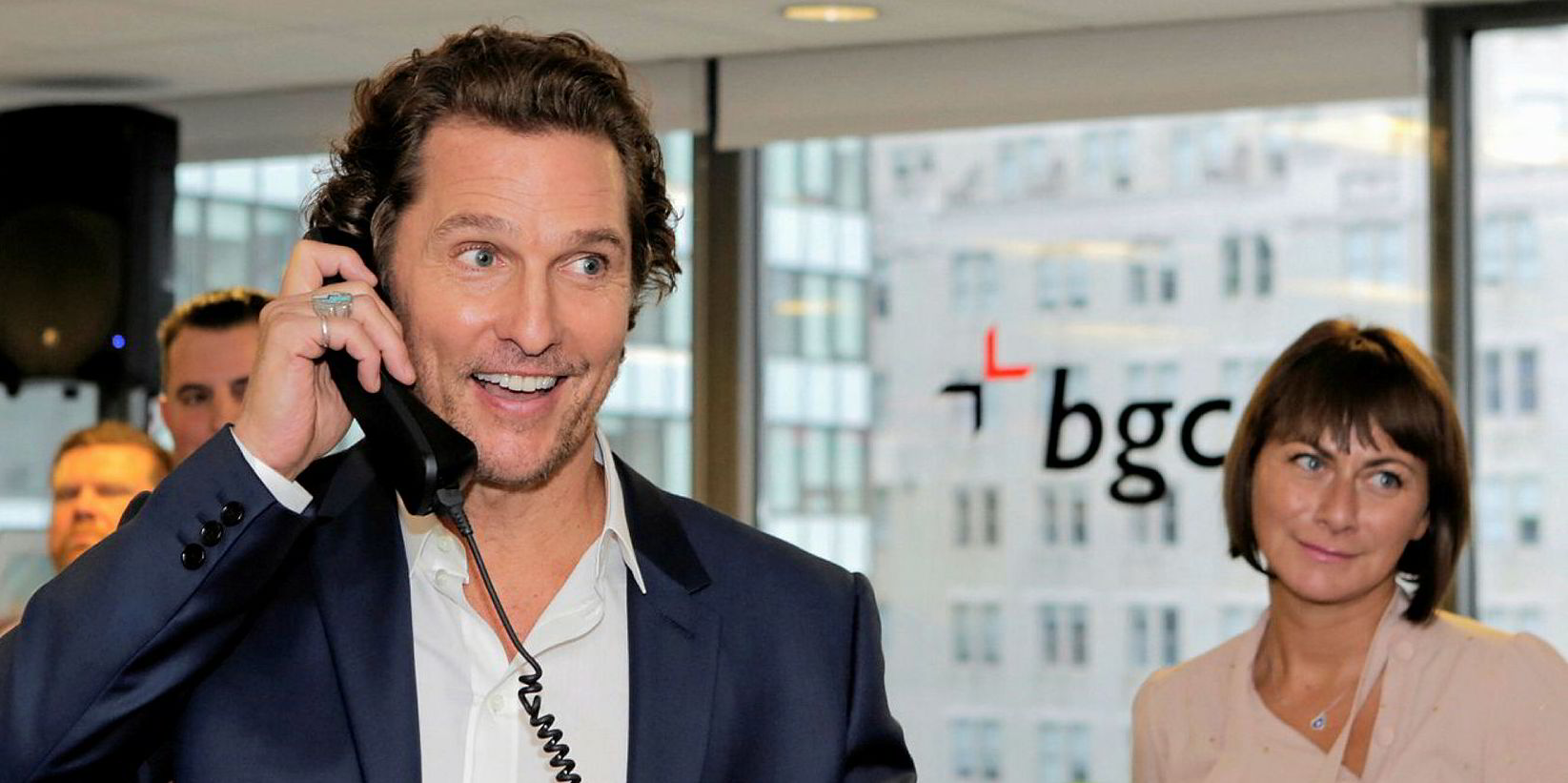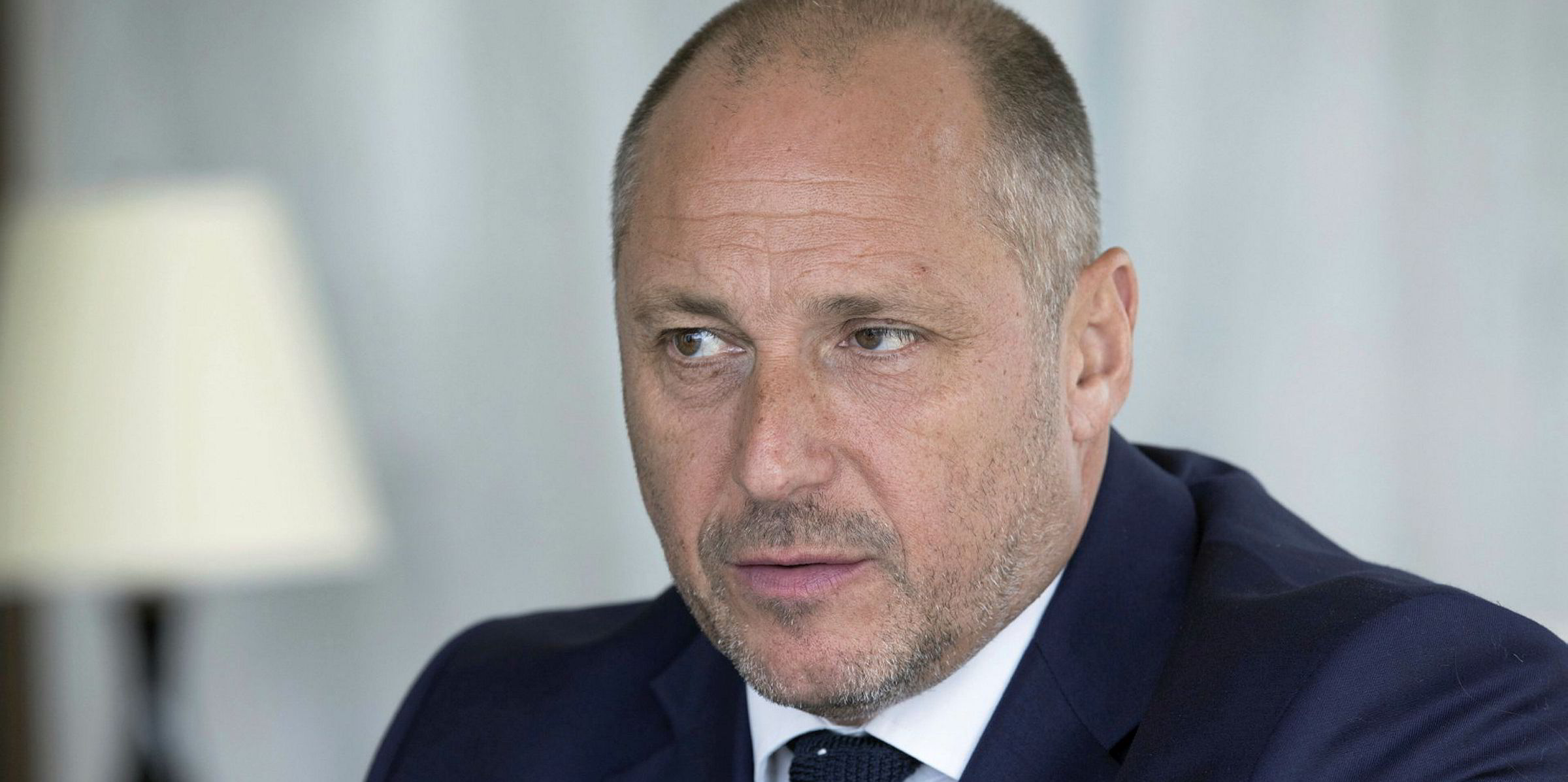Eighteen months in the making, BGC Partners' surprise deal to buy venerable US shipbroking house Poten & Partners from its staff last week both surprised and impressed.
It will have also sent a shiver down the spines of a few people.
Overnight, the big boots of a high-energy financial services player have landed in a sector that remains something of a backwater compared with its energy and commodity trading peers.
The deal may well go down as a benchmark in the reinvention of a very traditional shipping business in an era of digitalisation and exploitation of the links between commodity producers, traders and consumers.
It was last Friday morning when word came through from BGC that the company wanted to speak with TradeWinds about a big deal it had in the offing. But the question was, what would it be?
Low profile — until now
BGC’s involvement in shipping has hardly stood out, with only the acquisition of GFI Group in 2015 and the fairly low-profile nature of its dry bulk broking activities since then.
It was better known for its charity day, where sportspeople, celebrities and royals staffed the phones in the interdealer broker offices, such as those in London’s Canary Wharf, to raise millions for good causes.
And those in the UK with longer memories will recall BGC’s trumpet-mouthed financial pundit David Buik being a staple of the rolling news channels during the banking crisis, before retiring in 2011.

Few expected BGC to take a significant stride into the shipbroking market. And if anyone outside Poten had anticipated it, they kept the news very much to themselves.
So the announcement that the New York-based group had snapped up 100% of Poten with a mandate to grow its business came out of the blue.
The deal makes BGC the biggest and arguably most technologically sophisticated player in the market. With assets of nearly $9bn, annual revenues of $3.4bn, net income of $544m and 4,213 staff, its potential resources blow all of its rivals out of the water.
The deal makes BGC the biggest and arguably most technologically sophisticated player in the market. With assets of nearly $9bn, annual revenues of $3.4bn, net income of $544m and 4,213 staff, its potential resources blow all of its rivals out of the water
Giving those resources potential leverage are its acknowledged skills in developing and deploying voice, hybrid and electronic broking systems and databases for clients.
Shape of the future
That combination, and the early comments about BGC’s strategic intent from company president Shaun Lynn, perhaps gives an insight into where shipbroking will head in the decade ahead.
BGC was spun out of Howard Lutnick’s Cantor Fitzgerald in 2004, with its initials coming from Bernard Gerald Cantor, who founded the firm in 1945.
At the core of its business are technologically smart brokerage services across a wide range of financial services and property sectors. Driving its growth have been the twin tracks of building enhanced technology solutions and databases, while aggressively expanding through acquisitions.
In the past four years, it has made around 10 acquisitions to consolidate its market share, with its financial services brokerage business up nearly 60% over that period.
Recently, it pushed further into the insurance market with the purchase of Lloyd’s broker Ed Broking, following its acquisition of Besso Insurance Group for £71m last year.
Bolster operations
Key to Poten’s appeal is BGC's aim to bolster its own energy and commodities operations, which accounted for just 6% of its revenues in its latest results, recently posted for the third quarter of 2018.
And at the heart of Poten lies LNG. In fact, such is the significance of LNG to the company that it is mentioned six times in a paragraph describing the broker in the statement announcing the acquisition.
Poten may only rank as a mid to large-scale shipbroker in size with about 180 staff. But under the relentless presence of Michael Tusiani over the past 45 years, it has transformed from a tanker broker into a world leader in LNG, with supporting streams of LPG, asphalt, tanker and capital services.

Tusiani transferred control of the company to employees in 2007, when he stepped back to become the shop’s chairman emeritus.
But his strong long-term relationships with clients including BG, Qatar, ExxonMobil and several leading independent shipowners has enabled Poten to further enhance its pivotal role.
Perhaps only Tusiani could have played host at ABS’ LNG seminar at Posidonia this summer, where he moderated a discussion between three of today’s undoubted independent gas shipowning titans: John Angelicoussis, Peter Livanos and George Procopiou.
Culmination of a vision
Having turned 70 a little earlier this year, the BGC deal is clearly the culmination of Tusiani's vision.
He says he is enthusiastic about the potential opportunities that the merger offers both sides in building a more integrated operation across the entire LNG supply chain from producer to consumer.
Terms of the Poten deal remain private. With annual revenue of about $60m, the price will have likely been in three figures, although short of Clarksons' $441m purchase of RS Platou in late 2014.
But BGC’s buyout of Poten has a unique character. Poten’s focus on the dynamic and expanding LNG market made it a prime target for a US buyer keen to grow its energy and commodities activities.
After relatively few major shipbroking mergers in the past few years, it will raise questions whether we may be heading to a period of more consolidation as pressure on performance and results intensifies, amid demands for rapid improvements in technology.



